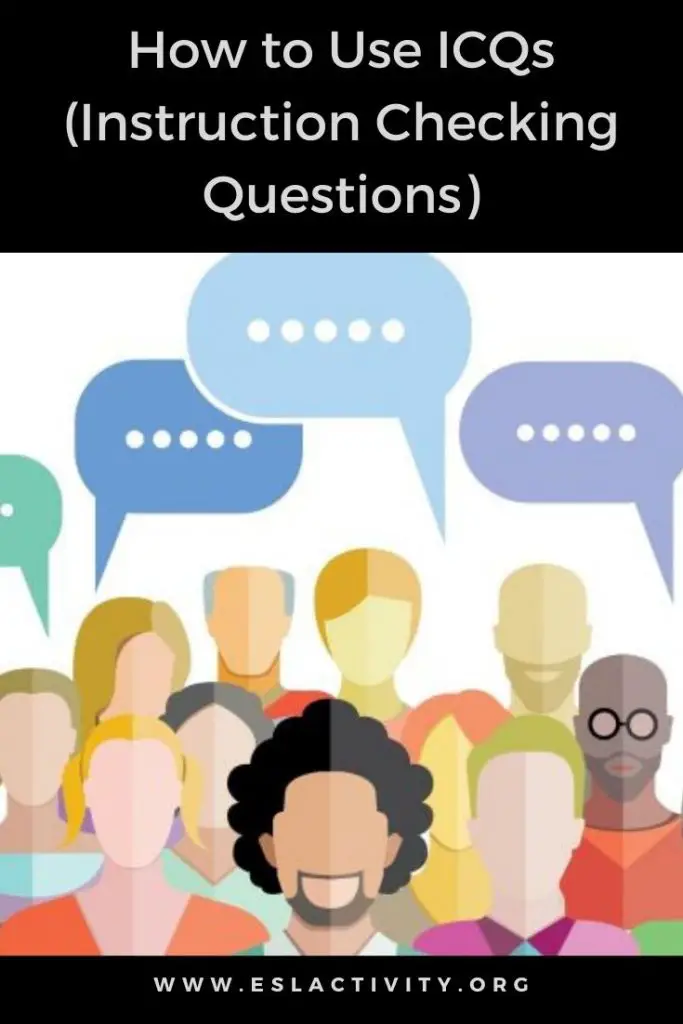
Not all learners can understand instructions completely especially if there is more than one action. What‘s the difference between them ICQs stand for instructions checking questions. Eventually, it will become a natural skill. ICQs and CCQs are popular abbreviations in modern methodology and they both mean questions. It may seem like a strange concept to begin with which is why it is a good idea to pre-prepare them for each task in the beginning. ICQs should be tailored for the task you are doing. What language will you use? What will you say?

What will do you when you’re finished? What will you do after _?

Who will you talk to? How many people will you talk to? How much time do you have for the activity? Here are some example ICQs that I use almost daily. You will find over time that some particular ways of wording your ICQs work really well with certain groups of students. Even today I still plan a lot of my ICQs for more difficult activities. For your CELTA, you will want to pre-plan your ICQs and look for intended responses. There is nothing wrong with repeating your instructions and it is much better than starting an activity with confused students. If students do not understand your ICQs or seem confused about the activity, go over and demonstrate it one more time. You want to do ICQs right before an activity starts. If you have set your activity up well, then there should be almost no need for ICQs, right? Pick and choose the most difficult concepts and remember that it isn’t important to cover all the little details of an activity. Make sure to only have around 2-3 ICQs per task as students can get flustered with having to answer many questions they may already know all the answers to. For example, “How long will you talk for?”, “What will you talk about?”, and “Who will you talk to?” This is about as basic as it can get. What would be some good ICQs f you were setting up an activity where students have to talk to their partner about their weekend for 2 minutes? Covering details in your ICQs are important. The concept for ICQs is that once you have set up an activity, you check whether the students understand the instructions for what they have to do next. ICQs, not to be confused with CCQs, stand for Instruction Checking Questions and are an important skill to master for any teacher.


 0 kommentar(er)
0 kommentar(er)
